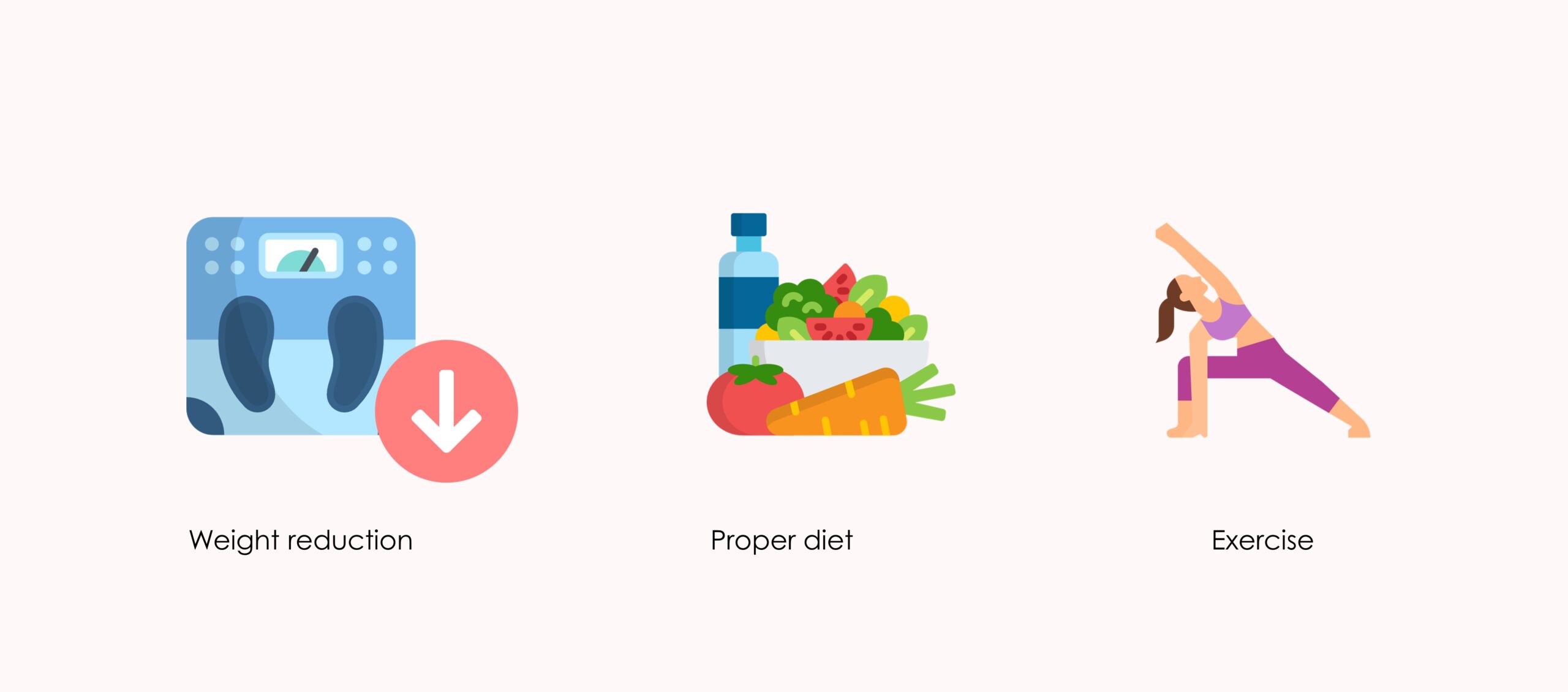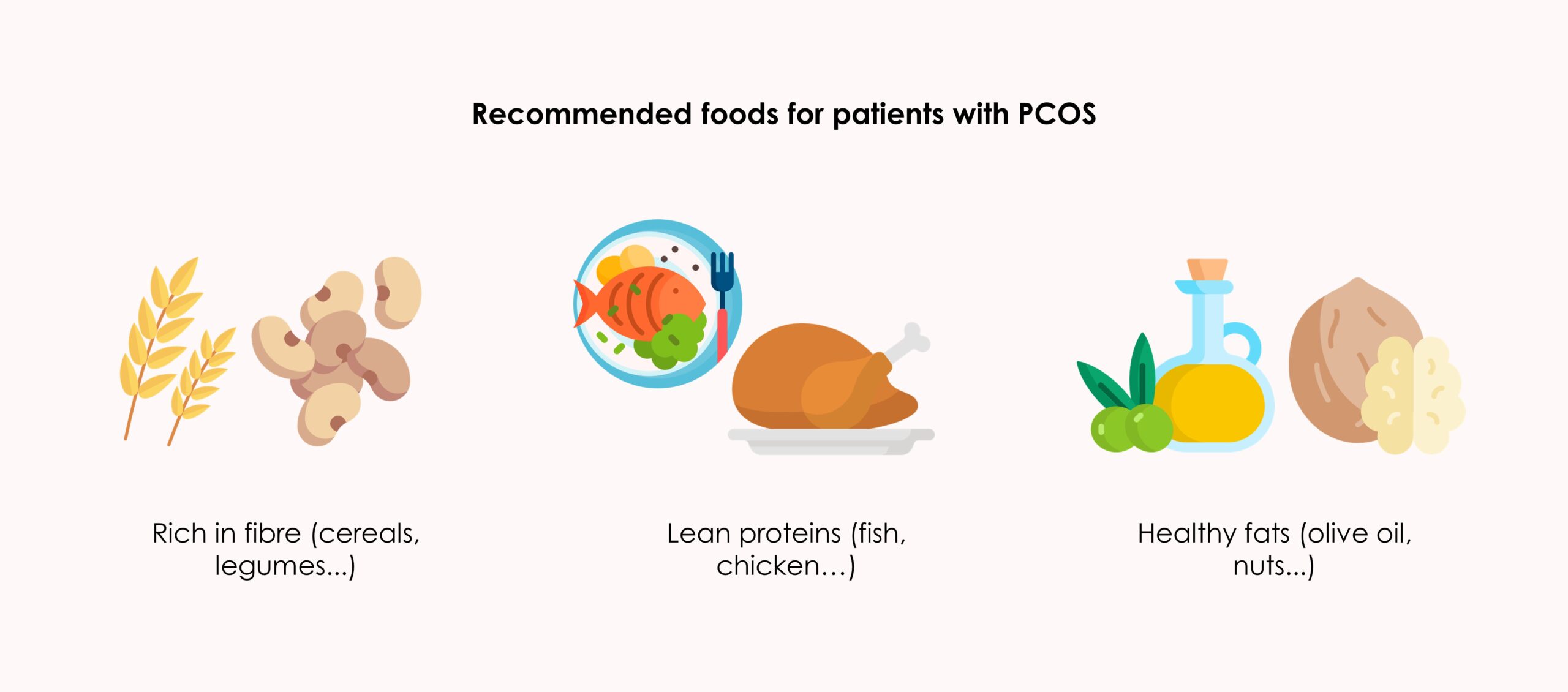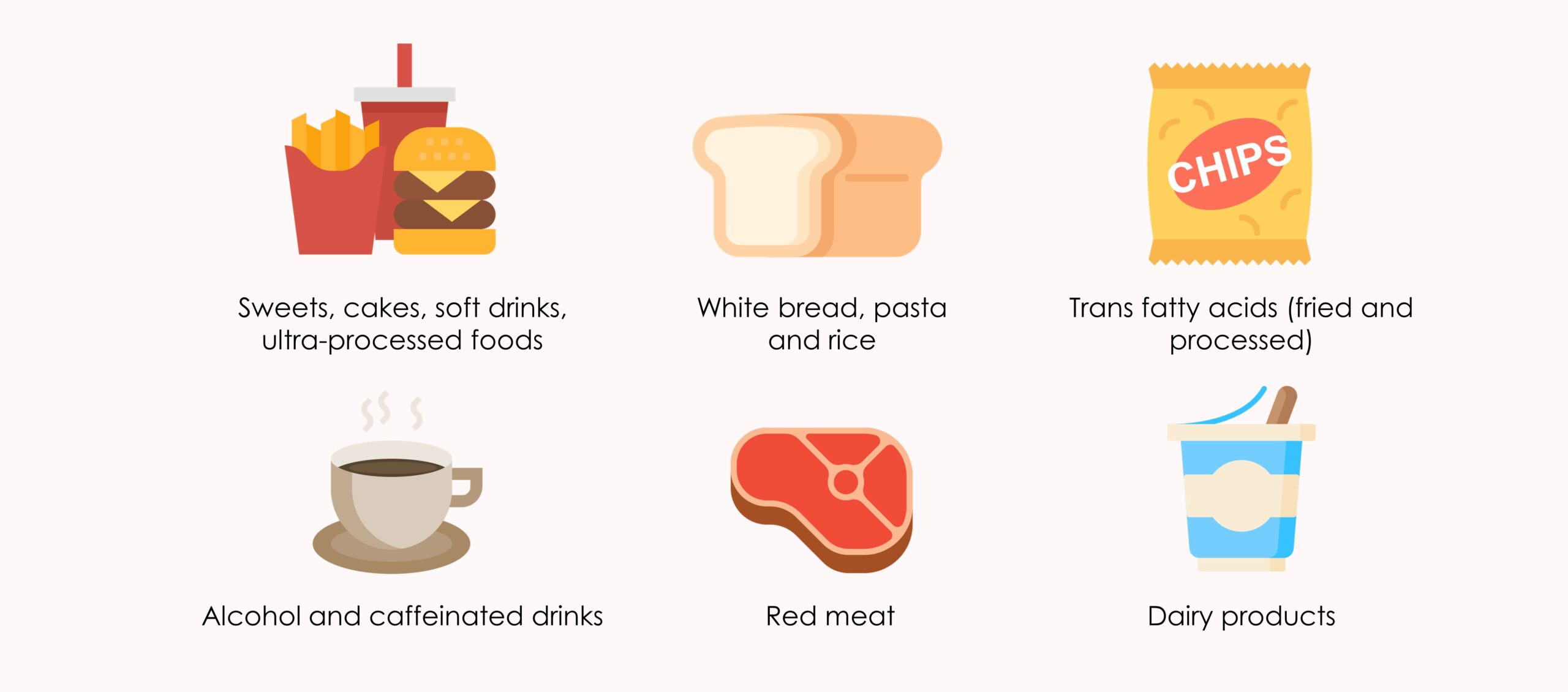Polycystic ovary syndrome (PCOS) is a complex consitions that affects the endocrine system of women, sometimes hindering their fertility. Both exercise and diet can play an important role in alleviating the effects of PCOS.
What should you eat to improve PCOS?
It is important to consult with an endocrinologist or nutritionist to develop an appropriate dietary strategy for patients with polycystic ovary syndrome. However, we can establish some general guidelines on diet that can improve PCOS symptoms in many cases.

The basic recommendations for women with PCOS are a healthy diet and exercise. It is advisable to eat small portions throughout the day instead of large meals and engage in regular physical activity. Exercise helps improve insulin sensitivity and contributes to weight loss.
Recommended foods for patients with PCOS
Among the nutrients that are beneficial for patients with polycystic ovary syndrome, the following are worth mentioning:
- Complex carbohydrates rich in fibre, such as whole grains, vegetables and legumes, which help stabilise blood sugar levels
- Lean proteins: fish, chicken, tofu and legumes help control appetite and control weight.
- Healthy fats, such as those found in olive oil, nuts and oily fish.
- Vitamins and minerals.

Folic acid and vitamin D are especially important for women with PCOS.
Foods to avoid if you suffer from PCOS
Food products that women with polycystic ovary syndrome should avoid are:
- Refined sugars and rapidly absorbed carbohydrates. You should avoid the consumption of sweets, cakes, soft drinks and highly processed foods.
- Simple carbohydrates. White bread, pasta and rice can quickly increase blood sugar levels. For this reason, it is preferable to opt for its whole-grain variants in women with PCOS.
- Trans fatty acids, which are found in fried and processed foods, and can increase inflammation and worsen PCOS symptoms.
- Alcohol and caffeinated drinks. These substances are likely to make PCOS symptoms worse, so their consumption should be limited as much as possible.
- Excessive red and processed meats can increase insulin resistance.

Finally, fatty dairy products would be another food that is not recommended for patients with Polycystic Ovary Syndrome. Women who suffer from PCOS may have difficulty processing dairy, especially high-fat dairy products. Dairy products can be reduced or eliminated altogether or replaced by lactose-free alternatives or plant-based milks, which are usually better tolerated.





No hay comentarios